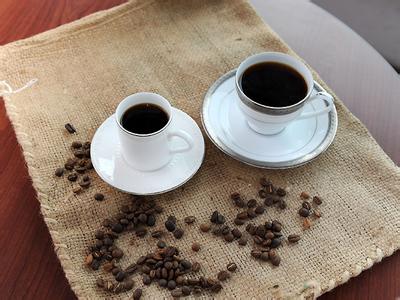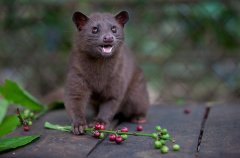Brazil is committed to the study of "tomorrow Coffee" Brazilian Coffee
Brazil is the strongest coffee producer in the world, and coffee technology is leading the world. A few years ago, scientists used genetic comparisons to find out whether the descendants of Bourbon and Tibica introduced 300 years ago still exist in Brazil. it was found that Brazil's existing bourbon and Tibica had nothing to do with their counterparts in Yemen, Ethiopia, Bourbon and Kenya, and had long been assimilated or localized. Ethiopia is the world's largest center for Arabica variety improvement and innovation.
Ninety percent of today's Arabica improved varieties were born at the Institute of Agronomy in Brazil (IAC). There are countless varieties of coffee in Brazil, in addition to the four well-known heavenly kings Bourbon, Kaddura, Kaduai and the New World, there are also aggressive variants or mixed-race coffee, such as yellow bourbon, Icato, Obata, Akaia and Ruby. Among them, Icato and Obata are the most noteworthy, because these two varieties are hybrids of Arabica and Robusta, which were introduced more than a decade ago and have not been paid much attention because they have the evil smell of thick beans. But after years of reverse hybridization between Brazilian scientists and Arabica, the flavor has been significantly improved. "the devil's tail is gradually purified to the tail of an angel." it tastes no different from high-quality Arabica. However, the output and disease resistance are better than Arabica, and have gradually come to the fore in the cup test competition.
The Brazilian Coffee Research and Development Association has teamed up with 40 research units to launch the Coffee chromosome Project in 2002 ○○. Thirty thousand genes resistant to drought and diseases and insect pests have been identified from samples from the Coffee Genome Bank. Scientists believe that within 10 years, the commercial cultivation of "tomorrow coffee with good flavor, high yield and super resistance" will begin, and the average yield of coffee per hectare in Brazil will increase from the current 19 bags (1140 kg) to 32 bags (1920 kg). In addition, Brazil's research on natural low-caffeine coffee trees has not been suspended, and the progress remains top secret. The author believes that tomorrow's coffee must not only have high yield, strong disease resistance and delicious taste, but also natural low caffeine. If it can be done, it will certainly stimulate coffee consumption. People who usually drink two large cups and worry about exceeding the upper limit of 300 mg caffeine can rest assured to drink a few more cups without affecting their sleep.

Important Notice :
前街咖啡 FrontStreet Coffee has moved to new addredd:
FrontStreet Coffee Address: 315,Donghua East Road,GuangZhou
Tel:020 38364473
- Prev

Brazilian Santos Coffee can't be seen yesterday. Brazilian Coffee
Brazil also has bulk commercial coffee Santos. More than 20 years ago, Bourbon Santos (Bourbonsantos) was the highest grade coffee in Brazil. It was neither sour nor bitter nor fragrant, light as water was the most important feature, but without personality beauty. In the past, as long as there was no bitterness, it was good coffee. However, after 1999 ○, the trumpet of boutique coffee was blown all over the world, and the fragrant Santos soon perished.
- Next

The manufacturing process of the Kopi Luwak, the world's most expensive coffee.
Do you know where the most expensive coffee in the world comes from? The answer is Indonesia. Indonesian Nouak Coffee has conquered foodies all over the world with its unique taste. What is even more peculiar is that the raw material of this kind of coffee comes from cat droppings! The reason why this coffee has an irresistible taste is thanks to the civet Nouak, which feeds on coffee berries and is undigested.
Related
- Detailed explanation of Jadeite planting Land in Panamanian Jadeite Manor introduction to the grading system of Jadeite competitive bidding, Red bid, Green bid and Rose Summer
- Story of Coffee planting in Brenka region of Costa Rica Stonehenge Manor anaerobic heavy honey treatment of flavor mouth
- What's on the barrel of Blue Mountain Coffee beans?
- Can American coffee also pull flowers? How to use hot American style to pull out a good-looking pattern?
- Can you make a cold extract with coffee beans? What is the right proportion for cold-extracted coffee formula?
- Indonesian PWN Gold Mandrine Coffee Origin Features Flavor How to Chong? Mandolin coffee is American.
- A brief introduction to the flavor characteristics of Brazilian yellow bourbon coffee beans
- What is the effect of different water quality on the flavor of cold-extracted coffee? What kind of water is best for brewing coffee?
- Why do you think of Rose Summer whenever you mention Panamanian coffee?
- Introduction to the characteristics of authentic blue mountain coffee bean producing areas? What is the CIB Coffee Authority in Jamaica?

